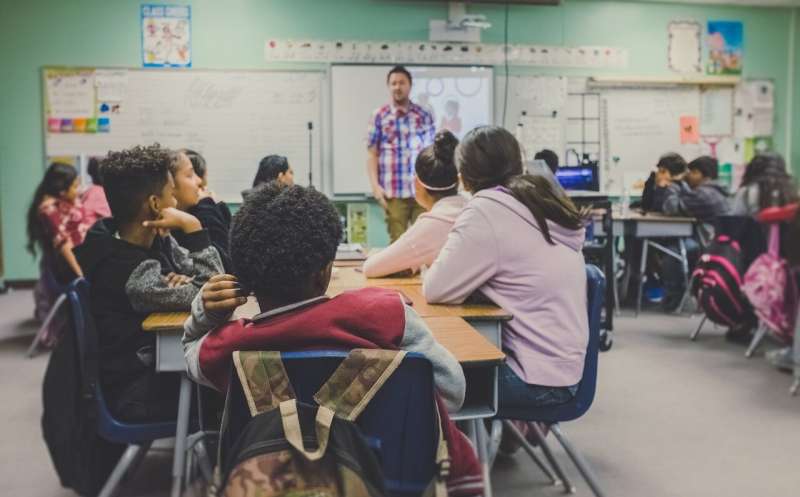Credit: Unsplash/CC0 Public Domain
At a West Coast-based after-school making/tinkering program, educators gathered participating kindergarten-5th grade students together at the beginning of each session, gave them instructions for the day's work, and then let them work independently or in small groups to complete science, technology, engineering, arts and mathematics (STEAM) activities.
Assistant Professor Natalie R. Davis and colleagues from Northwestern University's School of Education and Social Policy analyzed three years' worth of data from this after-school program to better understand how and when students demonstrated moments of self-determination—or, how children assert themselves and bring their own ideas, interests and questions into their work.
The research team used 70 hours of video, 30 ethnographic fieldnotes and participant interviews for their study, which was published in Learning, Culture and Social Interaction.
They grouped children's instances of self-determination into two broad categories. The first, called "acts of contestation," included moments when students rejected offers of help from others, opted out of certain prompts or expressed different perspectives from adults or peers. The second, called "moves to elsewhere," included times when students explored ideas outside of the STEAM activity's instructions, incorporated playfulness into their work or pursued their personal interests related to the activity.
In both sets of self-determination practices, students created new possibilities for learning and inspired their peers to do the same. Davis and her colleagues took an in-depth look at two specific students' actions over time and explored how their moments of self-determination shaped social conditions and improved learning outcomes for themselves and their fellow participants.
"We show how seemingly small moments can really be important opportunities for collective learning and interaction," Davis said.
This research also has important implications for educators, who can learn how to encourage and incorporate children's questions, feedback and new intellectual pursuits into their classrooms.
"Children are very sensitive to conditions and environments that feel constraining. Through playfulness, humor, questioning and resistance, they offer important insight into classroom culture and disciplinary learning," Davis said. "Educators can prevent opportunities for rich learning and critical civic development if they routinely ignore or punish children's self-determined activity."
More information: Natalie R. Davis et al. Learning from below: A micro-ethnographic account of children's self-determination as sociopolitical and intellectual action, Learning, Culture and Social Interaction (2020). DOI: 10.1016/j.lcsi.2019.100373
Provided by Georgia State University





















